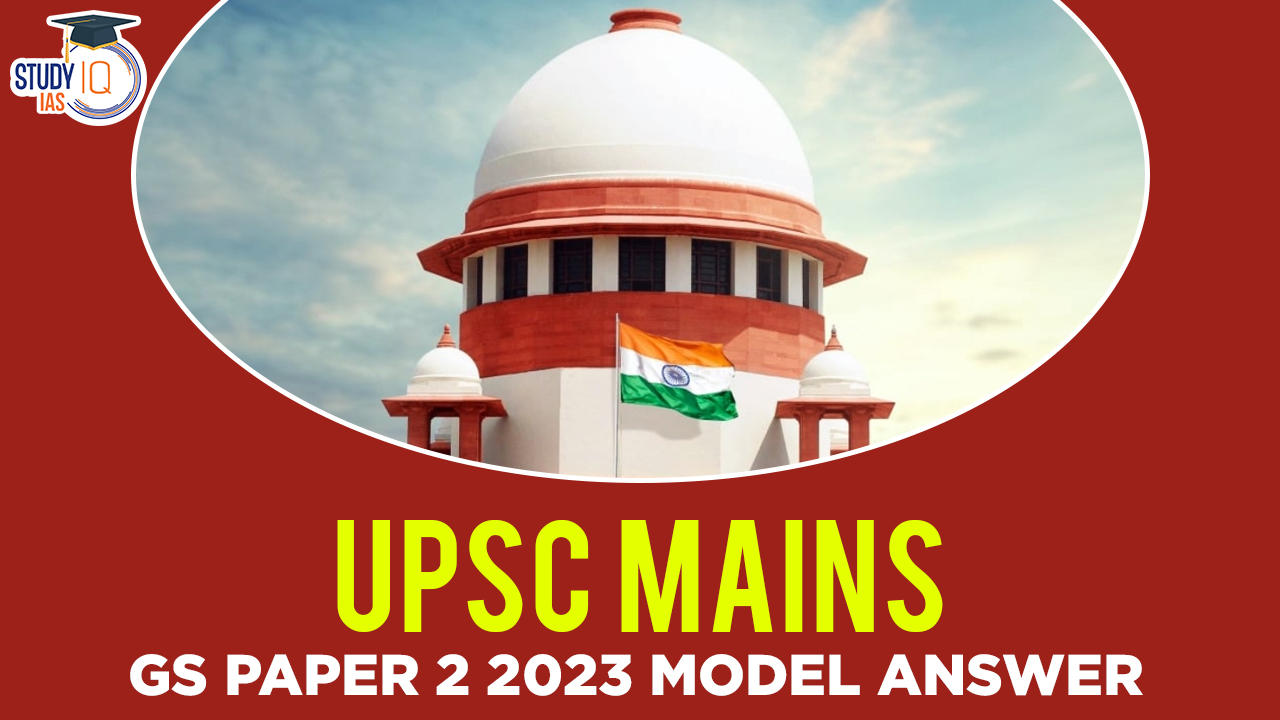Q3. “The states in India seem reluctant to empower urban local bodies both functionally as well as financially.” (10m)
Introduction
To realise the objectives of democratic decentralisation and empower the urban local bodies,74th Constitutional Amendment Act,1992 was enacted. It provided Constitutional status to Urban local bodies. However, they still face the challenges of funds, functions, functionaries and functionality.
Body
Reluctance from States in empowering local bodies
- Own source of Revenue: Urban Local bodies are largely dependent on grants from states, lack a diversified source of revenue (60% revenue from property tax alone).
- Irregularity in formation of State Finance Commissions
- Appointment of Mayors: Many states like M.P., U.P. have directly elected mayors but they are mere nominal heads due to inadequate power devolution.
- Devolution of powers: As per Devolution Index, the devolution of functions and powers stands at merely 10% in various states.
- Functional Overlap: Though 74th Constitutional Amendment Act,1992 empowered states to devolve responsibility of 18 subjects to ULBs, these functions are often carried out by parastatals, thus reducing autonomy of ULBs. (E.g. Bengaluru Development Authority for land Regulation and Karnataka Slum Clearance Board for Slum Rehabilitation).
- Establishment of ward Committees: Many states do not constitute ward Committees as mandated by the Constitution, non-transparent procedure for appointment, delay in elections.
- Lack of involvement in decision making: E.g. Municipal Commissioner vis-a-vis Mayor.
However, some States are providing adequate powers and resources to local bodies and maintaining a harmonious coordination with them.
- Capacity Building: States like Karnataka and Mizoram are focusing on capacity building of local bodies to improve their functioning. They are also providing them assistance in Localisation of SDGs.
- Financial Autonomy: Some states like Gujarat, Maharashtra, Andhra Pradesh are providing financial autonomy to ULBs to generate their own source of revenue.
- Political Representation to women: Nearly 21 states in India have more than 50% of reservation for women in local bodies.
- Devolution of resources: Under initiatives like Smart cities Mission, AMRUT Mission, states are devolving some functions and resources to ULBs.
Conclusion:
The reluctance on part of states poses challenges to effective urban governance and the realisation of sustainable development goals. Addressing this issue is crucial to ensure that local bodies can play their rightful role in shaping the future of India’s rapidly growing cities and towns.
Check out the UPSC Mains GS Paper 2 2023 Analysis with detailed expatiation of the topics of Mains GS Paper 2 By the Study IQ Experts





















 WhatsApp
WhatsApp